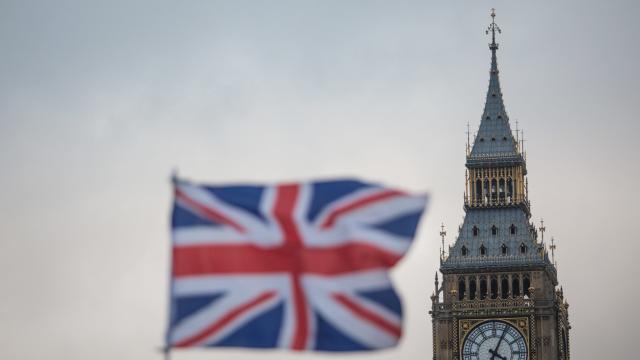The UK is considering a controversial approach to testing potential vaccines for the coronavirus that causes covid-19: intentionally exposing volunteers to the virus, in a strategy known as challenge trials.
Last week, the Financial Times reported that the UK government will allow human challenge vaccine trials to begin by January 2021. In these trials, volunteers would be given an experimental vaccine and then later exposed to the coronavirus in a controlled setting. These trials, advocates say, will speed up the development of covid-19 vaccines, though other experts have worried about the potential health risks to volunteers.
At this point, however, the status of these trials still appears to be in flux. A spokesperson for the UK’s Department for Business, Enterprise and Industrial Strategy said in a statement to Gizmodo: “We are working with partners to understand how we might collaborate on the potential development of a COVID-19 vaccine through human challenge studies.”
Last Thursday, the pharmaceutical company Open Orphan, which the Financial Times reported will be involved in running these trials, said that it was in “advanced negotiation” with the UK government and other partners to begin these trials but that there “can be no certainty that these discussions will lead to a new contract until final negotiations are concluded.”
A representative for another reported partner, the Imperial College London, declined to comment on the report specifically, telling Gizmodo via email that “Imperial continues to engage in a wide range of exploratory discussions relating to COVID-19 research, with a variety of partners.”
According to the Financial Times, the challenge trials would be held at a facility used for quarantine in East London. Further details about how many people are expected to volunteer or how many vaccines will be tested still appear uncertain, though pharmaceutical companies such as Sanofi and AstraZeneca have said that they will not be involved.
Challenge trials aren’t a new thing in medicine. Ideally, they help fast-track research into infectious diseases like covid-19. Rather than wait potentially months or more for people given an experimental vaccine to become naturally exposed to the target germ, for instance, you can just study how they respond right from the get-go. Not only could this speed up human trials, but it could provide crucial insight into the natural history of a disease, both in how it sickens someone and in how the body fights back, since doctors would be there to monitor the person from the very beginning of their infection.
But though challenge trials have been used in the past to test some of the first vaccines and drugs ever developed, the design of those trials would be considered unethical and dangerous by today’s standards. In modern times, they have been used to study diseases like the flu, tuberculosis, and dengue, including to test out potential vaccines.
The problem is that it can be hard to develop challenge trials that don’t place people at too much risk. Challenge trials tend to work with well-known diseases that are treatable with existing medications or have strains milder than the more common variety in the wild. But neither option is really feasible for covid-19, which is approaching 1 million recorded fatalities worldwide (steroid drugs may help save the most severe cases, but their benefits are modest).
In lieu of this, advocates for a covid-19 challenge trial — most prominently led by the organisation 1DaySooner — have proposed only using young, healthy adult volunteers, arguing that they face the least amount of risk from the viral illness. While it’s true that younger people are much less likely to die from covid-19, critics have noted that we don’t really have a firm grasp on the potential long-term complications of even a seemingly mild covid-19 case.
Another consideration is that challenge vaccine trials are usually used for diseases that are tricky to track in real time or may not be common in a natural setting. In countries like the U.S., however, covid-19 is still very prevalent, so it probably won’t be hard for people to become exposed to it. In the UK, daily new reported cases were very low during the summer, but the pandemic looks to be making a comeback both there and throughout Europe in recent weeks. By January, though, who knows what things will look like.
In any case, all vaccine trials — challenge or not — will be vetted for approval by the UK’s regulatory authorities. It’s likely that challenge trials will be especially scrutinised for safety concerns, both locally and by others such as the World Health Organisation. For what it’s worth, there seem to be no shortage of potential volunteers. According to the Financial Times, at least 2,000 people in the UK have pledged to volunteer for a challenge trial through 1DaySooner.
